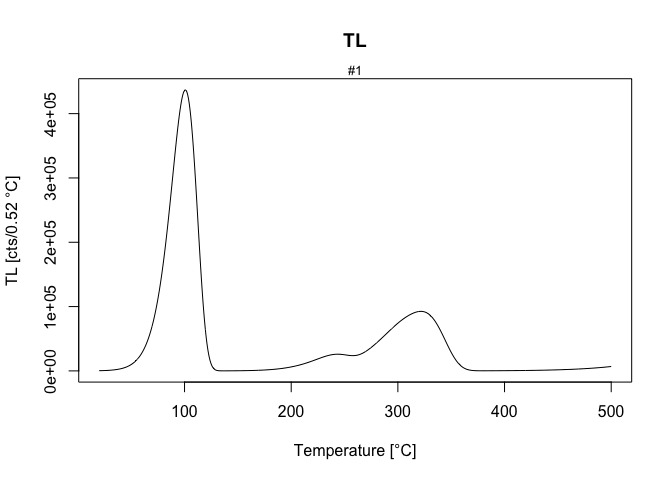The R package 'RLumModel' by Johannes
Friedrich (University of Bayreuth, Germany), Sebastian Kreutzer
(Geography & Earth Sciences, Aberystwyth University, United Kingdom)
and Christoph Schmidt (University of Lausanne, Switzerland) provides a
collection of various R functions modelling luminescence signals in
quartz and Al2O3, based on energy-band models.
For an introduction and further details, visit the RLumModel homepage.
To install the stable version from CRAN, simply run the following from an R console:
install.packages("RLumModel")To install the latest development builds directly from GitHub, run
if(!require("devtools"))
install.packages("devtools")
devtools::install_github("R-Lum/RLumModel@master")To install a developer build other than ‘master’, replace the term ‘master’ in the codeline by the name of the wanted developer build.
Depending on your OS please download and install one of the following:
model <- "Bailey2001"
sequence <- list(
IRR = c(20, 10, 1),
TL = c(20, 500, 5))
model.output <- model_LuminescenceSignals(
model = model,
sequence = sequence,
verbose = FALSE
)
The package comes without any guarantee!
Please further note that this version is a development version and may change day by day. For stable branches please visit the package on CRAN.
This program is free software: you can redistribute it and/or modify it under the terms of the GNU General Public License as published by the Free Software Foundation, either version 3 of the License, or any later version.
This program is distributed in the hope that it will be useful, but WITHOUT ANY WARRANTY; without even the implied warranty of MERCHANTABILITY or FITNESS FOR A PARTICULAR PURPOSE. See the GNU General Public License for more details.
The development of RLumModel benefited from the support by various funding bodies:
The initial work by Johannes Friedrich, Sebastian Kreutzer and Christoph Schmidt was supported by the DFG (2015–2018, SCHM 3051/4-1, “Modelling quartz luminescence signal dynamics relevant for dating and dosimetry”, SCHM 3051/4-1)
The work of Sebastian Kreutzer as package author was supported by LabEx LaScArBx (ANR - n. ANR-10-LABX-52) between 2017 and 2019.
From 2020, Sebastian Kreutzer received funding from the European Union’s Horizon 2020 research and innovation programme under the Marie Skłodowska-Curie grant agreement No 844457 (project: CREDit).